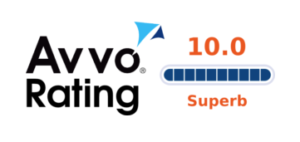



Experienced Lincoln Financial Disability Insurance Attorneys Helping Denied Claimants Across the US
Lincoln Financial Denial
Lincoln Financial Appeals
Lincoln Financial Lawsuit
Don’t settle for less. Insurance companies make money when you fail to ask questions or talk to the right people. By denying disability claims outright or convincing policyholders to settle claims for less money, insurers bank on you not putting up a fight. Insurers also profit through delay tactics—earning interest by “floating” valid claims, rather than paying them in timely ways. To avoid any deception from these insurance carriers, speak with our Lincoln Financial Disability Insurance Attorney.
With total revenue of $13.8 billion in 2016, Lincoln Financial has huge financial muscle and an intimidating disability presence. This means Lincoln may deny or float the legitimate claims of smaller players—like individual or group disability policyholders—in the interest of company profits, and will try to cower them into letting it go.
If you experienced trouble with your individual or long-term disability claim under a Lincoln Financial policy, our Lincoln Financial Disability Insurance Attorney at DarrasLaw invites you to a free consultation. We regularly handle individual and long-term disability insurance claim disputes and appeals. Advocating for disability claimants nationwide, we are the top disability law firm in the United States. We have recovered nearly $1 billion in wrongfully denied insurance benefits for clients.
We offer free consultations—which can include policy analysis and help with your claim. To discuss your case with a disability claim denial attorney today, call our office at 800-898-7299, or send us an email through our online contact form.
What is a Bad Faith Denial?
When a policyholder files an individual claim with Lincoln Financial or any insurer, the law requires that the insurer act in good faith and fulfill its contractual obligations. This means that your insurance company should not get away with simply looking for ways to avoid paying honest, rightful claims—this unlawful practice is known as acting in insurance bad faith. Bad faith claims and lawsuits can arise in many ways, including, but not limited to:
- Unjustified denials of disability coverage
- Failure to reasonably investigate a claim with an eye towards payment
- Failing to make a claim decision within a reasonable amount of time
- Failure to provide relevant information to the claimant (or person filing the claim)
Lincoln National’s Checkered Past
Lincoln National Corporation is a Fortune 250 company, managing multiple insurance and investment management businesses—each of which are subsidiary company. The main, or principal, subsidiaries are:
- Lincoln National Life Insurance Company
- Lincoln Life & Annuity Company of New York
- First Penn-Pacific Life Insurance Company
- Lincoln Financial Distributors
- Lincoln Financial Advisors
Lincoln Financial has issued many individual and long-term disability denials, delays, and terminations of legitimate claims. The company provides both group short-term and long-term disability coverage to more than two million employees through thousands of corporate clients.
Disability insurance is designed to protect its policyholders in the event that they suffer a disability. Disabilities consist of mental illnesses, medical conditions, and injuries that prevent people from completing the normal duties of their occupations—such as traumatic brain injuries, fibromyalgia, Lyme disease, and many other physical or mental medical conditions.
Insurance companies can also wrongfully delay or deny legitimate claims, and they do. Policyholders have filed many lawsuits against Lincoln Financial Insurance—some have alleged that the insurance company acted unfairly or unreasonably denied rightful claims, and at least some of these allegations proved meritorious.
In April 2015, The New York State Department of Financial Services investigated Lincoln Financial. The findings determined that they had, in fact, engaged in unfair claims settlement practices. Lincoln Financial did not provide timely, unbiased, and equitable settlements of claims, according to the report. The department stated that Lincoln Financial violated New York insurance law.
In June 2008, the most senior-level executives at Lincoln Financial received an audit that revealed significant errors in the company’s claims-processing division. Nonetheless, these executives allegedly failed to effectively address the issue. From June 2008 through June 2014, these claim errors continued, according to the department’s findings. Lincoln Financial’s excess of pending, unsettled claims hit a historical high.
*Information regarding these findings against Lincoln Financial is available through a 2017 consent order—a matter of public record. See http://www.dfs.ny.gov/about/ea/ea170307.pdf
Next Steps After Lincoln Financial Denies Your Individual or Long-Term Disability Claim
Lincoln Financial must provide you with an explanation if it chooses to deny your claim. This explanatory document can take several forms. Common reasons for denial include:
- Policies that only approve claims involving certain kinds of ailments or injuries
- Policies with limitations beyond which the company will not provide benefits
- Missed deadlines and untimely submissions of required or requested documents
- Disagreement with your doctor’s medical restrictions and limitations.
 Your denial appeal options will depend, in part, on who provides your insurance. If your employer provides your group with short or long-term disability insurance, you will likely need to timely appeal your denial through the administrative process—before you may file an official ERISA federal lawsuit. If you lack familiarity with this administrative process, an experienced ERISA disability insurance lawyer can help you navigate your appeal. If, on the other hand, you carry a private, individual disability insurance policy, your options will depend on the terms of your policy. You might be able to file a lawsuit without undergoing any prior administrative process.
Your denial appeal options will depend, in part, on who provides your insurance. If your employer provides your group with short or long-term disability insurance, you will likely need to timely appeal your denial through the administrative process—before you may file an official ERISA federal lawsuit. If you lack familiarity with this administrative process, an experienced ERISA disability insurance lawyer can help you navigate your appeal. If, on the other hand, you carry a private, individual disability insurance policy, your options will depend on the terms of your policy. You might be able to file a lawsuit without undergoing any prior administrative process.
Help From Our Lincoln Financial Disability Insurance Attorney
DarrasLaw can help whether you face negotiations, arbitration, an administrative appeal, or a contentious formal lawsuit. We hold major insurers, like Lincoln Financial and Lincoln Financial, accountable for practices resulting in individual and long-term disability insurance claim denials. We can address denials, disputes or questions arising from:
Lincoln Financial delaying payment without justification
Insurance companies are required to pay legitimate claims within a reasonable amount of time—the specifics will vary depending on the circumstances and policies
Lincoln Financial failing to respond to policyholder requests
Lincoln Financial—and all insurers—have a responsibility to timely and clearly communicate with their policyholders and to satisfy—or at least respond to—policyholder requests for information in a timely fashion. Keep records of your requests for information and the follow-up actions that you receive or have received.
Lincoln Financial sending endless demands for additional information
In some cases, disability insurance companies try to make the burden of filing a disability claim unbearable. Endless requests for information may cause you to give up on your disability claim or, if the burden overwhelms you, you might miss essential filing deadlines and provide opportunities for the insurance company to unfairly delay or deny your claim. Experienced insurance disability denial attorneys can help you address these and other issues.
Independent Medical Examinations (IME) by Lincoln Financial
Lincoln Financial may conduct an IME to determine the cause, severity, and expected medical treatments or restrictions expected from a work-related or other injury or sickness when their liability is at issue. Doctors with no connection to the claimant and some fidelity to the insurance company, however, normally perform these IMEs. As you can imagine, doctors can conduct these IMEs in bad faith. If you have questions, contact your disability insurance lawyer.
Functional Capacity Evaluations (FCE) by Lincoln Financial
Lincoln Financial can use an FCE to independently assess whether you can perform the duties related to your employment. They determine this by comparing your health status to the demands of the occupation and the work environment. Their findings could contradict the opinions and testing of your treating doctor. As you can imagine, issues often arise. Keep all documents that may support your case.
Lincoln Financial failing to comply with ERISA regulations
The Employee Retirement Income Security Act of 1974 (ERISA) is a wide-ranging federal statute that applies to U.S. group disability employee benefit plans when private employers or labor unions provide those plans. Like other parts of an employee’s benefits package, group disability insurance plans are subject to ERISA. Pertinent parts of ERISA include reporting and disclosure rules and certain “prohibited transactions.”
When Lincoln Financial experiences extensive claims backlogs, as well as other things that could easily hurt their ability to approve your claim in fair and timely ways, we can help you hold them responsible.
Lincoln Financial ignoring new medical evidence
Lincoln Financial—and nearly all insurance providers—include discretionary language in their policies they believe allows them to disregard your treating physician’s statements and medical records when choosing to deny your claim. This does not mean, however, that you can’t fight back—and win. Depending on the circumstances, insurance companies’ decisions to ignore treating physician statements and medical records can constitute bad faith in an individual policy setting or an arbitrary and capricious finding in your favor in a group setting.
Video surveillance of claimants by Lincoln Financial
Lincoln Financial—and all insurance companies—can hire investigators to spy on and videotape claimants (like you) to find evidence that disputes claimants’ disability claims. This is especially common with invisible disabilities such as fibromyalgia or mental nervous claims. These unsettling investigative tactics can range from taking photographs to weekly stakeouts at your home. Talk to an experienced disability insurance attorney if you are concerned that this may have happened (or is happening) to you.
Lowball settlement offers from Lincoln Financial
After receiving the initial settlement offer for your disability insurance claim, you have to decide whether to accept or deny it. Insurance companies want to pay as little as possible, so they tend to make extremely low initial offers. They have a range of compensation to offer but tend to propose the lowest figure first, hoping you’ll accept it without contest. Talk to an experienced individual or group long-term disability insurance lawyer—skillful negotiators can lead to better settlement offers.
Misinformation about Lincoln Financial’s policy terms
Lincoln Financial has an obligation to keep you informed of the most up-to-date terms and conditions of your policy. Almost all policies contain provisions that make them subject to change. This is normal. If Lincoln Financial changes policy language or provisions, the law requires it to update you. If Lincoln Financial misinformed you, this could entitle you to more than you are receiving. Talk to your disability insurance lawyer if you have any questions or concerns about misinformation.
Don’t Throw It Away—Keep All Disability Claim Documentation!
If Lincoln Financial delays or denies your claim, keep (or retrieve) copies of all correspondence between you and the insurance company whenever possible. Such documents can include, but are not limited to:
- Any documents providing additional information that your insurance company requested or that you voluntarily sent to the insurance company (like medical documents provided by your doctor or pharmacy that support your claim).
- A copy of your request for appeal, if applicable, on group coverage.
- If someone else filed an appeal for you, a copy of any form or letter you signed permitting that person to help you.
- Any documents showing your benefits or denials paid, delayed, denied, or appealed.
- Notes and dates from as many phone and email conversations as you had with The Lincoln Financial—or any other relevant professional—relating to your delay, denial, or appeal. Always try to include things like the day, time, name, and title of the person you talked to, as well as any important information shared or discussed in the conversation.
This list should provide a brief summary of what you should collect and record. If you cannot find all of your relevant documents, do not despair. Find what you can, make note of the documents you remember submitting but can’t locate, and save everything moving forward.
Cases Litigated Against Lincoln Financial *some of the following cases may be currently pending in court as of December 22, 2017
Glover v. Connecticut General Life Insurance Company and The Lincoln Financial Life Insurance Company (2016)
Plaintiff alleged that Lincoln Financial Life Insurance charged more for the cost of insurance than permitted by the policy.
Helen Hanks v. The Lincoln Life and Annuity Company of New York (“LLANY”) and Voya Retirement Insurance and Annuity Company (“Voya”) (2016)
Plaintiff alleges that Lincoln Financial/LLANY, as reinsurer and administrator of Plaintiff’s policy, engaged in wrongful conduct related to the cost of insurance increase and was unjustly enriched as a result.
Mukamal, et al. v. Lincoln Financial Life Insurance Company and Lincoln Financial Corporation (2017)
Plaintiffs allege that Lincoln and Lincoln Financial Life breached the terms of policyholders’ contracts when it increased the cost of insurance rates beginning in September 2016.
US Life 1 Renditefonds GmbH & Co. Kg and US Life 2 Renditefonds GmbH & Co. Kg v. The Lincoln Financial Life Insurance Company (2017)
Plaintiffs allege that Lincoln breached the terms of policyholders’ contracts when it increased the cost of insurance rates beginning in 2016.
EFG Bank AG, Cayman Branch, et al. v. The Lincoln Financial Life Insurance Company (2017)
Plaintiffs allege that Lincoln breached the terms of policyholders’ contracts when it increased the cost of insurance rates beginning in 2016.
Swenson, et al. v. The Lincoln Financial Life Insurance Company, Lincoln Life & Annuity Company of New York, Voya Retirement Insurance and Annuity Company, and Voya Financial, Inc. (2017)
Plaintiffs allege that Lincoln breached the terms of policyholders’ contracts when it increased the cost of insurance rates beginning in 2016.
*This information was disclosed as a matter of public record, by Lincoln Financial Corporation: https://www.lfg.com/wcs-static/pdf/ar10k16.pdf
How Do I Afford a Disability Insurance Lawyer?
An unexpected period of disability often results in serious financial hardships for you and your family. For this reason, many disabled people find themselves asking: How do they hire an expert disability insurance attorney to fight for the coverage and benefits they know—or strongly suspect—they’re entitled to while lacking the money to cover the costs out of pocket and attorney fees?
If you find yourself in this financial situation, please don’t worry! At DarrasLaw, we take all of the disability claim delay and denial cases that we choose to represent on a contingent fee basis. This means that you do not pay us upfront. We do not collect our fees or costs unless we resolve your case successfully.
We cover all the up-front costs associated with your case—including medical evaluations, investigations, and court costs (in the event that your case goes to trial). We hope to help as many disabled people from all over the country as we can. This contingent fee arrangement helps us ensure that more people who need an experienced, national disability claim-denial lawyer can get one.
Contact Our Lincoln Financial Disability Insurance Attorney At DarrasLaw Today!
DarrasLaw is a top-rated and nationally recognized disability law firm. We are fully committed to our mission: to serve the disadvantaged and disabled by ensuring they timely receive what their insurance companies rightfully owe them. Our compassionate, expert disability lawyers have the skill and experience to take on large insurers at the negotiating table and, if necessary, beat them in the courtroom.
As one of the top 100 trial lawyers in America, Frank N. Darras and his team handle a wide spectrum of individual and long-term disability insurance claim denials, from a few thousand dollars to claims worth millions. We have an unmatched track record of forcing insurers like Lincoln Financial to fulfill their contractual obligations.
Testimonial
Review: 5/5 – ★ ★ ★ ★ ★
“First of all, I want to thank you for accepting my case against Lincoln when I first came to you in 2009. Words can’t begin to express how grateful I am to you. You are so fortunate to work amongst such individuals that represent your firm so honorably. Socorro was so patient and sympathetic to me through all my phone calls and emails to her; Katherine was so detailed and helpful; Jo-Ann kept me well informed; and Lissa just amazed me with her knowledge, professionalism and grace. I am truly grateful to Lissa for the amazing job she did in settling my case. It was beyond what I ever expected. But you Heather, you allowed the opportunity for me to close this chapter in my life, and begin again. I included 5 tin-cans of my FAVORITE chocolate chip cookies for each of you. I hope you enjoy, and that you savor each bite with a smile. God bless you all! Sincerely”
– Leonor A.
Our nationally renowned disability firm handles Lincoln Financial insurance claim delays and denials throughout the United States. Call us at 800-898-7299 or write us through our online contact form for a free consultation, including a free policy analysis and claim help.






